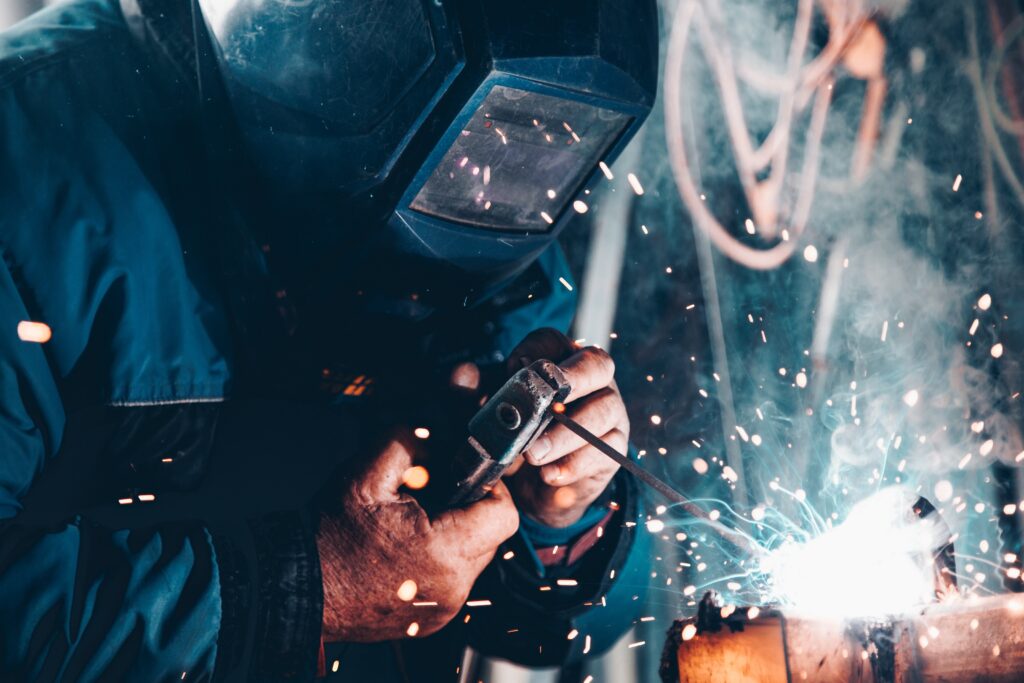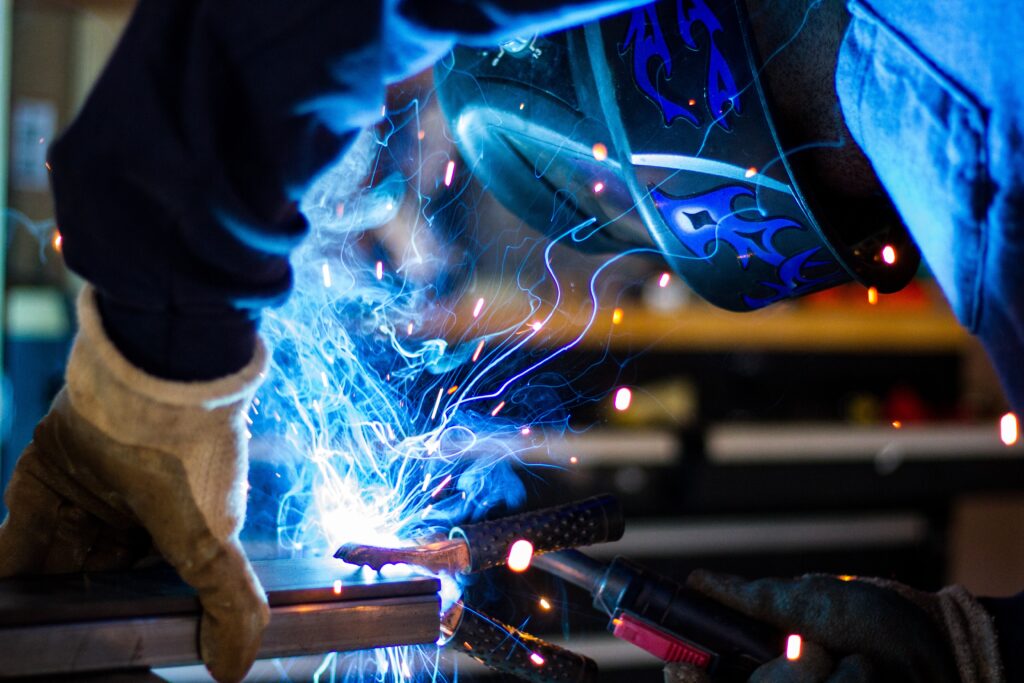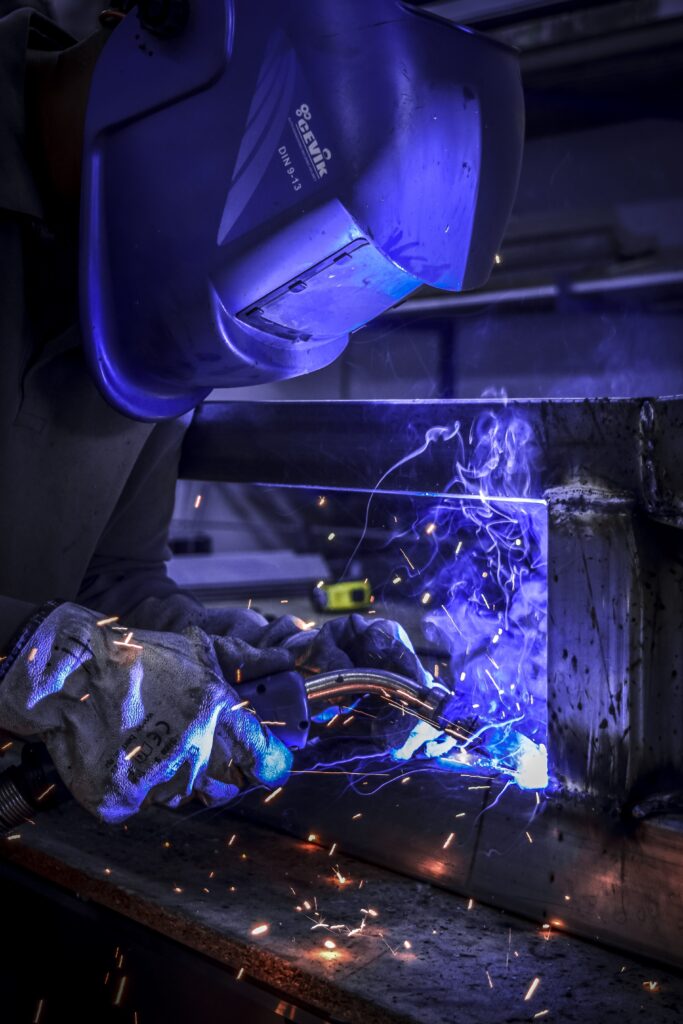Embarking on a new career path can stir up a whirl of questions and uncertainties. If you’re considering welding as your new venture, it’s natural to wonder about the reality of the job and its potential stress levels. You’re in the right place! The article, “Is Welding A Stressful Job?” is here to unravel that mystery for you. It’s crafted to provide you profound insights into the world of welding, particularly addressing and discussing its demands and pressures. So, brace yourself for a helpful exploration of whether or not welding could be a stress-inducing occupation.

Understanding the Nature of Welding
Welding might seem like a simple process which involves just plugging in a few cords, but it’s far more than that. It requires technical expertise, precision, and patience.
Overview of what a welding job entails
A welding job involves joining metal pieces together by melting the areas of contact with extreme heat and adding a filler material. Welding is a crucial part of many industries, from automotive to construction and even space exploration. It demands not only skills but also an understanding of different types of metals, their traits and how heat affects them.
Different types of welding processes
There are multiple types of welding processes, each with its own specific purpose and technique. Some common ones include Shielded Metal Arc Welding (SMAW), Gas Tungsten Arc Welding (GTAW), and Flux-Cored Arc Welding (FCAW). Each process has its own advantages, challenges, and applicable scenarios.
Typical working conditions of a welder
Welders typically work in industrial settings which can vary significantly. Some might work in a well-ventilated, spacious workshop, while others might find themselves in confined, uncomfortable spaces or at great heights. The job often requires prolonged periods of standing, lifting heavy items, and working under potentially hazardous conditions.
Physical Demands of Welding
Welding is a physically demanding job that requires both strength and stamina.
Requirement for physical strength and endurance
The physical strength required for welding often involves lifting heavy equipment, maneuvering in tight spaces, and maintaining steady hands for precision. Welders also need endurance as they often must stay in the same position for extended periods.
Potential injury risks in welding
Welding poses potential risks of burns, electric shocks, and exposure to harmful light rays. Certain welding processes also pose the risk of flying sparks or molten metal droplets which can cause severe injuries if proper protective measures are not taken.
Impact of physical stresses on welders
The physical stresses in welding can result in a host of health problems, ranging from fatigue and muscle strain to more serious issues like chronic joint and back pain. Regular exposure to intense heat can also lead to problems like heat stress and dehydration.

Hazards and Safety Risks in Welding
Beyond the physical demands, welders also face safety hazards and risks related to the nature of their work.
Fumes and gases exposure
Welders are frequently exposed to harmful fumes and gases produced during the welding process. This can lead to serious respiratory issues, or exacerbate existing respiratory conditions.
Risk of burns and electrical shocks
Another major safety concern in welding is the risk of burns and electric shocks. Welders work with high voltages and extreme heat sources that can cause severe injuries if safety procedures are not meticulously followed.
Eye and skin damage from radiant energy
Radiant energy emitted during welding can cause significant damage to the eyes and skin. Welders can suffer from ‘welder’s flash’ or ‘arc eye’, a painful condition caused by exposure to ultraviolet light. Extended exposure to radiant energy can also result in skin burns and other dermatological issues.
Psychological Stress in Welding
Welding can be a stressful job, due to various reasons.
Pressure to meet deadlines
As with any other job, welders may also face the pressure of meeting tight deadlines. This often involves working longer hours, facing higher risk scenarios, and dealing with client expectations.
Quality control stresses
Quality is absolutely essential in welding, as the integrity of the final product relies on the quality of the welds. Regular inspections, rework, and pressure to maintain quality can cause significant stress.
Coping with isolation and solitary work
Welding is often solitary work, and the necessary protective equipment can make communication with colleagues difficult. This isolation can lead to feelings of loneliness and increased stress.

Effects of Environment on Welder’s Stress
Different working environments can add to the stress levels faced by welders.
Working in confined and uncomfortable spaces
From crawl spaces to high-rise construction platforms, welders often find themselves in physically demanding and uncomfortable positions. These scenarios require not just physical fortitude, but also mental strength.
Exposure to high temperatures
Exposure to intense heat, especially in enclosed spaces or during the summer, can cause discomfort and fatigue, adding to the overall stress level.
Noise and visual disturbances
The working environment of a welder is usually noisy, with various machines operating simultaneously. Moreover, the need to constantly feed visual attention to detail can lead to mental exhaustion over time.
Long Term Health Risks of Welding
Besides the immediate risks and physical demand, welding also holds certain long-term health risks.
Respiratory problems
Prolonged exposure to welding fumes can lead to serious respiratory problems including lung diseases and cancer. Wearing proper respiratory protection is critical to mitigate these risks.
Hearing loss risks
The loud noise in welding environments can lead to hearing loss over time. It is important to use preventive strategies and personal protective equipment (like earplugs) to reduce this risk.
Visual impairments potential
Continuous exposure to intense light and radiation during welding can potentially cause visual impairments, hence proper eye protection becomes essential.
Work-Life Balance for Welders
Maintaining a healthy work-life balance can be challenging in the welding profession.
Long working hours
Welders often face long working hours to meet deadlines especially in industries that operate round the clock. This can significantly limit personal and family time.
On-call and emergency work demands
Some welders may need to be on-call for emergencies, which can further disrupt personal life and leisure time.
Impact on family and social life
The unpredictable and long working hours coupled with the on-call nature of the job can take a toll on a welder’s family and social life.
Career Progression and Job Security
Different aspects of the welding profession can affect career progression and job security.
Job market volatility for welders
The demand for welders can be quite volatile, influenced by the health of related industries like construction, automotive, and manufacturing. This can often result in job insecurity.
Career advancement opportunities
Career growth in welding can take multiple avenues, including supervisory roles, inspection, or specialization in a particular type of welding. Nevertheless, moving up often requires further training and certification.
Risks of job loss or redundancy
Technological advancements could potentially automate some welding processes, which might lead to job redundancy in the future.
Coping Mechanisms for Stress in Welding
Despite the challenges, welders can employ several coping mechanisms to help them cope with occupational stress.
Proper training and preparation
Proper training not only improves proficiency but also helps welders understand and prepare for the physical and psychological demands of their job.
Adaptation to working conditions
Adapting to different working conditions and understanding how to work efficiently under various scenarios can ease stress levels.
Use of safety equipment and following protocols
Meticulous use of safety equipment and adherence to safety protocols hugely reduces the risk of injuries and illnesses, and consequently the associated stress.
Promoting Mental Health Support for Welders
Mental health support is crucial for welders to cope with the stress and demands of their job.
Importance of recognising and addressing stress
Recognizing signs of stress in oneself or in colleagues, and taking prompt action to address it, is integral to maintaining a healthy professional life in welding.
Availability of counselling and support services
Organizations should ensure the availability of counselling and mental health support services for welders to turn to when needed.
Encouraging a healthy work culture
Creating an environment where safety and mental health are prioritized can play a pivotal role in reducing stress, enhancing job satisfaction, and improving the overall wellbeing of welders.
